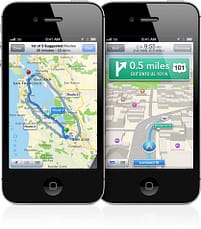There’s so much information online discussing best practices of local SEO that it can sometimes be difficult to separate the truth from the myths. Here are the top local SEO myths debunked so you can get a better understanding of local SEO.
Myth #1: Your local SEO efforts will work immediately. Local SEO does not happen overnight. Once you submit your information to Google+ Local and other local directories, it takes time to verify and approve those listings. Once the listings are verified, it takes time for the search engines to index them. The bottom line is, SEO is definitely not an overnight success. It takes a lot of time and effort then patience to wait for your hard work to make an impact.
Myth #2: Your company will only show up in the search results if the person searching is someone in certain mile radius of your business. It’s is a common belief that there is a certain mile radius around your business that your local SEO efforts will reach and that if a person searching happens to be within that radius, they’ll see you in the search results. However, it’s actually the opposite. The radius is around the person who is performing the search. So whether the person is performing a search on their mobile phone or computer, based on their location, the SEO efforts of the business and other factors in Google’s algorithm, the most relevant businesses will show up in the results. If your company has an optimized listing and you’re located near the person who is searching, your business is likely to show up in their results.
Myth #3: I should concentrate more on PPC than local SEO. There are multiple reasons why your local SEO is more important than PPC. Eye track studies show that the majority of people look at the Maps first when they enter a search results page, not the paid advertisements. According to comScore, 61% of searchers consider local search results to be more relevant, 10% for PPC. Also 58% of searchers consider local search results to be more trustworthy with only 9% for PPC. Local SEO is also less expensive. In fact many local SEO tactics are free (but time consuming). PPC can be very expensive depending on how competitive the keywords you’re going after are. The best practice is to use a variety of Internet marketing techniques together to get the most effective campaign. This includes local SEO, social media marketing, mobile marketing, traditional SEO and PPC.



 At today’s San Francisco iPhone 5 launch event, Apple revealed a thinner, faster iPhone equipped with Apple Maps/local search, Siri enhancements and other updates.
At today’s San Francisco iPhone 5 launch event, Apple revealed a thinner, faster iPhone equipped with Apple Maps/local search, Siri enhancements and other updates.